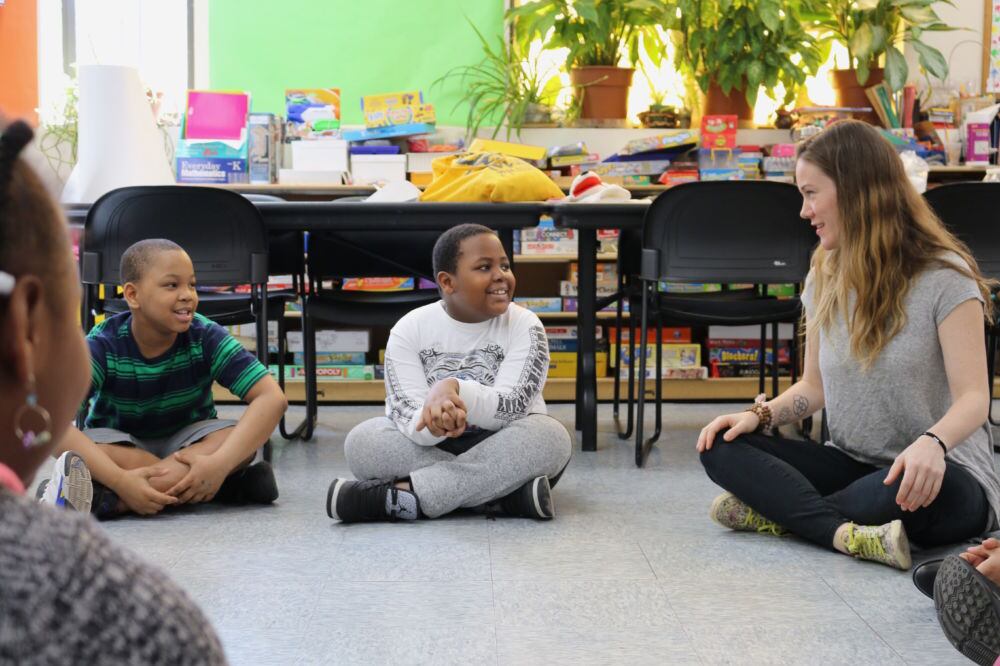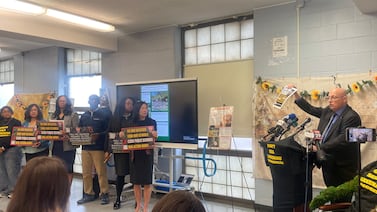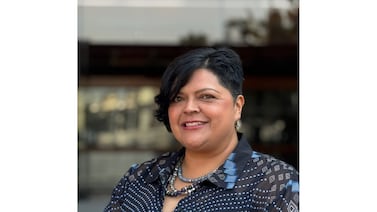Days after promising Wi-Fi for all family shelters amid concerns of poor internet access for homeless students, city officials revealed that most shelters won’t be connected until the summer, when the school year will have ended.
The news angered homeless advocates, who had hoped the city would move more quickly. They have long been demanding better connectivity at shelters, and increased their calls last spring when the coronavirus pandemic forced students to conduct most, if not all, of their learning online.
Officials have still not offered a concrete timeline for this work, but have said they set an “aggressive” goal to bring Wi-Fi by the winter to 27 shelters with the most glaring connectivity issues. That includes 11 shelters managed by the city’s largest operator, Women In Need, or Win, wrote Martha A.Calhoun, the city’s general counsel, in a letter Thursday to the Legal Aid Society. The nonprofit legal group had threatened to sue the city over lack of internet access for homeless students.
That could, however, leave about 200 remaining family shelters, including domestic violence shelters and planned new sites, waiting to get online until the summer.
City officials said they were expediting the project to get it done as fast as possible. In surveys of buildings that started last week, officials have so far found that most shelters have no cable running to individual apartments or any infrastructure to support cabling. That will require more work to install the Wi-Fi, according to Calhoun.
“For context, under normal circumstances, a massive build-out like this could easily take over two years to complete,” Calhoun wrote, revealing other details not publicly announced, such as the city’s intention to work with cable companies Altice and Charter Communications. (Late Thursday, a city spokesperson confirmed the details in Calhoun’s letter.)
The city’s potential timeline means families in shelters will “continue to grapple with shoddy internet for weeks and months, impairing access to remote learning,” Susan Horwitz, supervising attorney of Legal Aid’s Education Law Project, wrote in a statement. The Legal Aid Society was prepared to take legal action, she said.
Such a wait could have been avoided if city officials had worked sooner to bring Wi-Fi to these buildings, according to Horwitz.
Brooklyn Borough President Eric Adams, who is running for mayor, questioned why it would take the city so long to implement the plan. He tweeted that it was “a civil rights violation, plain and simple.”
To connect students over the spring and into the fall, the city spent about $400 million to purchase 450,000 iPads with T-Mobile cellular plans so they didn’t need Wi-Fi to operate.
Since the pandemic hit, many students in shelters have struggled to find reliable internet access or cellular coverage for their city-issued iPads, which connect to the internet through a cellular plan with T-Mobile. Most shelters do not have Wi-Fi, and many shelter operators report that their buildings have poor access to T-Mobile, leaving many families unable to log on. In the past few weeks, technicians visited sites and in some cases found that Verizon would work better, advocates said. To date the city has switched 324 iPads from T-Mobile to Verizon, a city spokesperson said.
Asked about the letter, de Blasio told reporters on Thursday that as the city figures out a timeline, technicians will change service providers on iPads at shelters with connectivity issues within 24 hours of a reported complaint.
“We do know that in some cases it was simply a matter of changing providers, that some providers have better reach, and we want to be able to make sure that every child has started.” de Blasio said.
The education department has also created a dedicated IT desk for students in shelter to address connectivity or other technical issues with the iPads, Calhoun said.
Randi Levine, policy director at Advocacy for Children New York, said her organization has been working with homeless families who have been waiting more than a month for technical assistance.
She said she’s “very hopeful” that families will get quick help and plans to monitor the city’s response.






